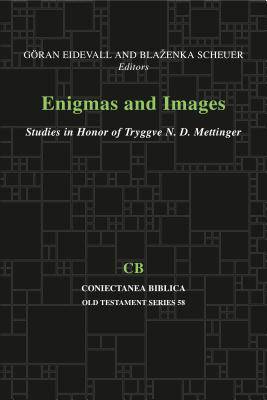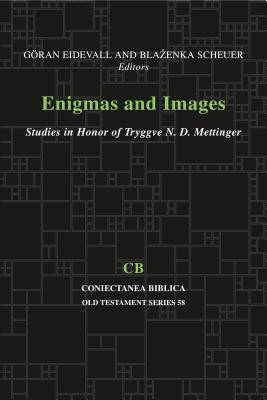
- Retrait gratuit dans votre magasin Club
- 7.000.000 titres dans notre catalogue
- Payer en toute sécurité
- Toujours un magasin près de chez vous
- Retrait gratuit dans votre magasin Club
- 7.000.0000 titres dans notre catalogue
- Payer en toute sécurité
- Toujours un magasin près de chez vous
Enigmas and Images
Studies in Honor of Tryggve Mettinger
Description
After 25 years as a professor in Old Testament exegesis at the University of Lund, Tryggve Mettinger decided to retire. In his farewell address (which in no way meant a farewell to the world of biblical studies), he gave an overview of his scholarly career--so far. The title of this lecture (in English), "On the Enigmas of the Notions of God: Report from a Scholar's Life," has been an important source of inspiration in the search for a title for the present volume and reflects the life and career of the beloved professor.
The two words "enigma" and "image" capture important aspects of Tryggve Mettinger's profile as a biblical scholar. For those who are acquainted with his work, the choice of the latter term requires no explanation. As Tryggve emphasized in his retrospective speech, several of his books and articles relate to one overarching theme that has to do with images: the study of the biblical Gottesbild (the biblical notion of the image of God). In this connection, the word "image" refers in the first place not to pictorial representations but to mental images and social constructions, to theological concepts and literary "imagery." However, iconography also lies within the scope of Professor Mettinger's research, even if a predilection for "aniconic" representations is evident. This observation may provide a link to the other word that is included in the title of this book, "enigma."
In his eagerness to understand the origins of the biblical prohibition against images, Mettinger embarked on an investigation into aniconic cult as a common trait of several Northwest Semitic cultures. Throughout his career, he has been driven by a strong curiosity about unsolved riddles, coupled with a healthy skepticism toward established theories and "truths" within the field of biblical exegesis. All contributions to this volume relate in one way or another to central themes within Mettinger's rich work.
The essays presented here pay lively tribute to one of the pivotal figures in Old Testament studies during the past three decades.
Spécifications
Parties prenantes
- Editeur:
Contenu
- Nombre de pages :
- 304
- Langue:
- Anglais
- Collection :
- Tome:
- n° 58
Caractéristiques
- EAN:
- 9781575068138
- Date de parution :
- 01-01-19
- Format:
- Livre broché
- Format numérique:
- Trade paperback (VS)
- Dimensions :
- 152 mm x 229 mm
- Poids :
- 439 g

Les avis
Nous publions uniquement les avis qui respectent les conditions requises. Consultez nos conditions pour les avis.





